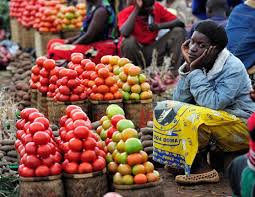EU Gives Ghana €47m for Irrigation — But Import-Hungry Policies Are Killing Local Farmers

Ghana has secured a massive €47 million European Union irrigation facility meant to boost local food production, strengthen agricultural resilience, and cut the country’s dependence on foreign cereals.
But on the ground, the story is painfully different.
Despite the investment, local farmers growing rice, maize, and vegetables say they are stuck with produce no one wants to buy. With no guaranteed market, no support from public institutions, and irrigation still underdeveloped in many communities, Ghana’s food system continues to reward importation over local production.
Political Gatekeepers Turned Import Merchants
Sources within the ports reveal a deeper problem:
politically-connected board members, appointed to oversee Ghana’s import regime, are themselves major players in rice importation.
Instead of using their influence to protect Ghanaian farmers, these individuals are allegedly benefiting from the very imports that undermine local agriculture.
As a result:
- Imported rice continues to dominate supermarket shelves
- Local rice sits unsold in warehouses
- Farmers face a food glut with no buyers
- Government agencies are not purchasing local produce
- Youth farmers are abandoning their fields due to losses
The Irrigation Paradox
Agric experts warn that irrigation alone cannot solve the crisis unless government policy protects Ghanaian farmers from unfair foreign competition.
“We now have irrigation, but we don’t have a market,”
a frustrated farmer told Nsemgh.
“Government says support local production, yet they buy imported rice for their own schools and institutions.”
The result is a loop of dependency:
more imports → declining local farming → more foreign exchange pressure → more borrowing → more irrigation projects → still no market.
Can the €47m Change Anything?
Analysts say the EU irrigation fund could help — if and only if:
- Government stops favouring cereal imports over local production
- Public institutions (prisons, military, hospitals, school feeding programme) are mandated to buy local
- Port governance is cleaned up
- Import cartels linked to political appointees are dismantled
- Farmers receive guaranteed pricing and storage support
Until then, Ghana may continue producing food with no buyers, while importers — many sitting on government boards — continue to profit.
www.nsemgh.com

